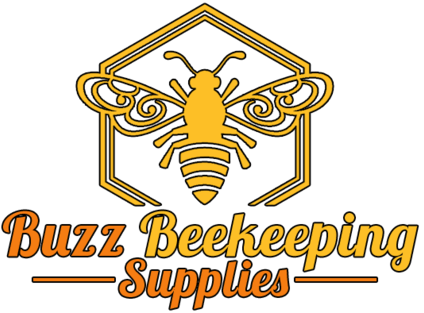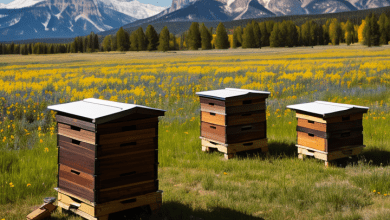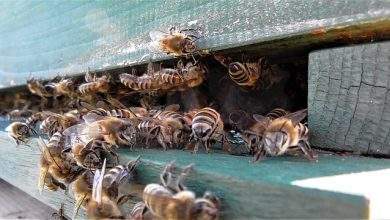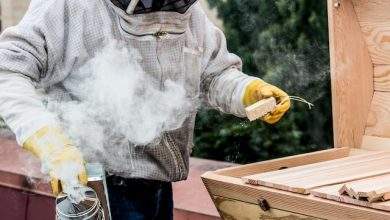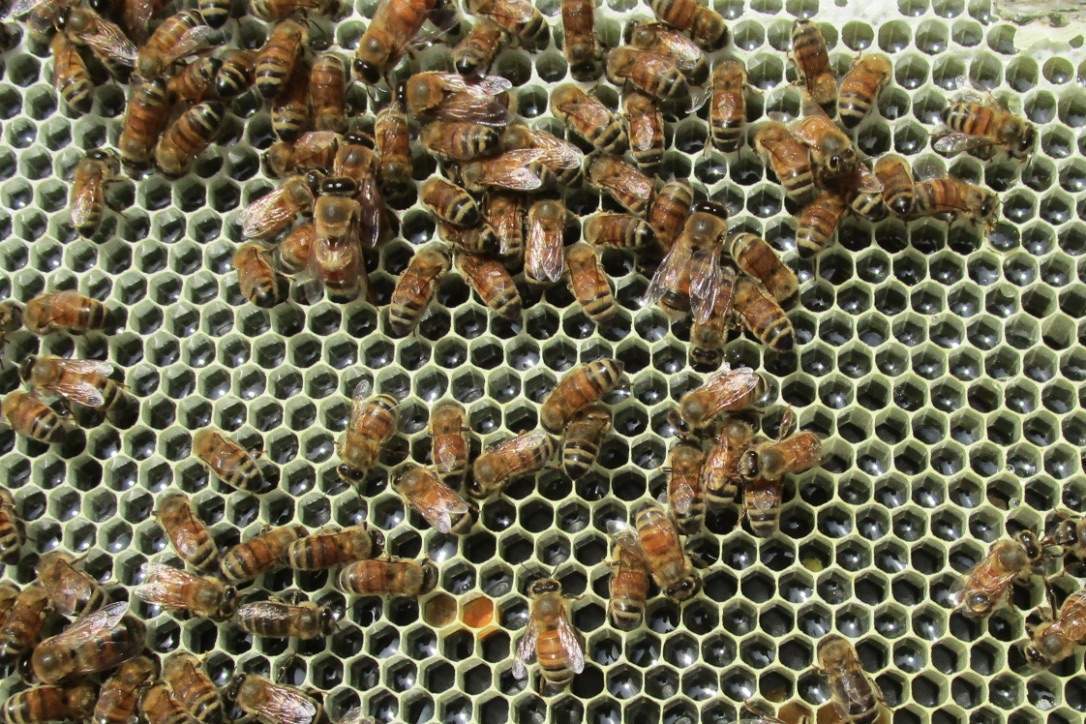Bee Supplies Georgia
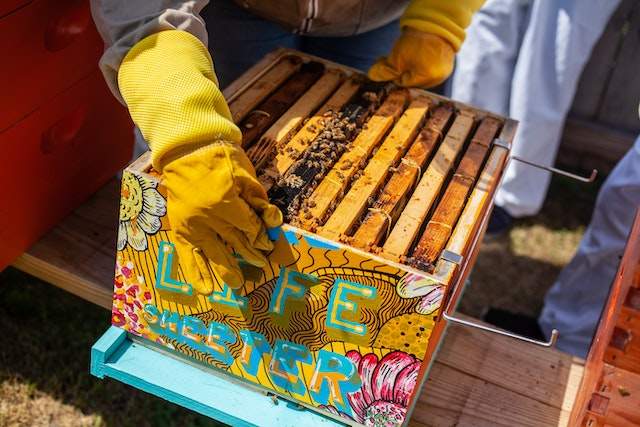
No matter where you are looking for beekeeping supplies in Georgia, we’ve got you covered.
Currently, there are approximately 650 registered beekeepers in Georgia, producing almost 15 million pounds of honey each year.
The state’s honey production has doubled in the past 40 years, making Georgia the nation’s number 2 honey producer.
Some beekeeping operations in Georgia may have as many as 30,000 colonies of bees.
Pollination fees alone bring in more than $6 million a year to the state. This does not include the income from honey production.
Two of the most popular honeys in Georgia include buckwheat and orange blossom.
Typical beekeeper supplies needed in Georgia include:
Beekeeping Woodenware
The most popular bee hive in the US is the 10-frame Langstroth hive, originally patented in 1852. This hive, for over 170 years, has been the industry standard.
The hive components include:
- Hive body
- Bottom board
- Honey super
- Frames
- Inner cover
- Hive cover
Beekeeper Protective Clothing
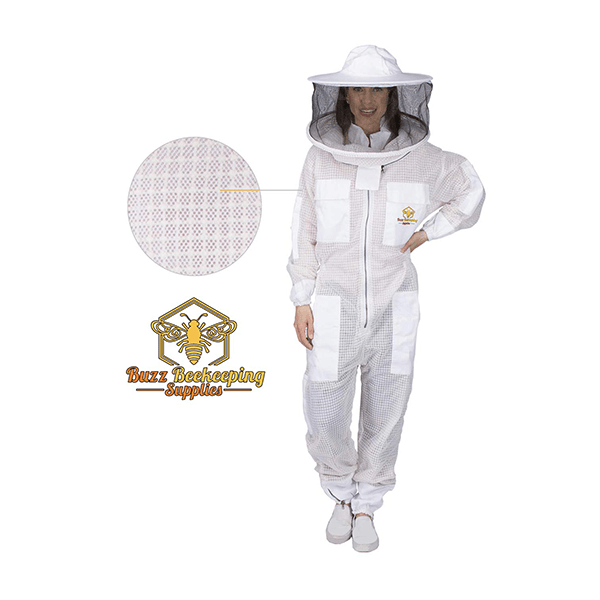
The most common protective gear for beekeepers include:
Beekeeping Suits
Both canvas beekeeping suits and ventilated bee suits are available.
Beekeeping Jackets
Canvas bee jackets and ventilated bee jackets are available.
Beekeeping Gloves
Goatskin bee gloves and cowhide bee gloves are available.
Many times, you can purchase a combo pack of a bee suit and bee gloves at a discount.
Please note: Your beekeeping suit or beekeeping jacket should come with a veil included.
Beekeeping Equipment and Tools
Here is a list of some common beekeeping tools:
- Hive tool
- Hive smoker
- Queen marker
- Bee Brush
- Hive feeder
- Entrance reducer
The state association is the Georgia Beekeepers Association.
Where to buy bees and nucs in Georgia?
One of the best places to purchase queen bees, packaged bees and nucleus hives (nucs) is your local bee club.
Here is a list of local bee clubs in Georgia:
- ABAC Beekeepers Association
- Altamaha Beekeepers Association
- Amicalola Beekeepers
- Augusta Beekeeping Association
- Bartow County Beekeepers
- Beekeepers Club of Gwinnett County
- Beekeepers of Gilmer County
- Beekeepers of Madison County
- Brier Creek Beekeepers
- Cartersville Beekeepers Guild
- Chattahoochee Valley Beekeepers
- Chattooga County Beekeepers
- Cherokee Beekeepers Club
- Clark’s Hill Beekeepers
- Coastal Empire Beekeepers Association
- Coweta Beekeepers Association
- Dunwoody Beekeeper’s Club
- East Metro Beekeepers
- Eastern Piedmont Beekeepers Association
- Effingham County Beekeepers Association
- Etowah River Beekeepers
- Forsyth Beekeepers Club
- Georgia Commercial Beekeepers Association
- Heart of Georgia Beekeepers
- Henry County Beekeepers
- Lake Country Beekeepers
- Lake Hartwell Beekeepers
- Macon Beekeepers Association
- Metro Atlanta Beekeepers
- Mountain Beekeepers
- Northeast GA Mountain Beekeepers
- Northwest Georgia Beekeepers
- Ogeechee Area Beekeepers
- Oglethorpe County Bee Club
- Paulding County Beekeepers
- Polk County Beekeepers Association
- Potato Creek Beekeepers
- Rome Floyd Beekeepers Association
- SOWEGA Beekeepers Club
- Tara Beekeepers
- Three County Beekeepers Club
- Tri County Beekeepers
- Troup County Beekeepers
- Walton County Beekeepers
- West Georgia Beekeepers
Beekeeping in Georgia
The Georgia Department of Agriculture regulates the apiary industry.
Georgia Beekeeping Laws
Licensing Requirement for Beekeepers in Georgia.
The Georgia Bee Law (O.C.G.A. 2-14-40) requires that all beekeepers selling bees, queens, nuclei, etc. commercially be licensed.
All other beekeepers (e.g. hobbyists, pollinators, honey producers) are not required to be licensed or inspected by the Plant Protection Section.
The beekeeping laws in Georgia can vary, depending on which city or county you reside or keep bees.
Honey Varieties in Georgia
Although several states produce more honey, few can match Georgia for variety and quality!
Sourwood – Not only does sourwood honey taste delicious, recent studies have shown it is the healthiest honey in the world, even better than Manuka honey.
Tulip Poplar – This honey is dark with a beautiful reddish color, and the flavor ranges from moderately mild to strong.
Gallberry – The shrub grows in the sandy soils of Georgia´s south coastal plain.
Tupelo Honey – This popular honey originates in the Florida panhandle and the Altamaha river basin of Georgia.
Wildflower – One of the best honeys available from all parts of Georgia.
Selling Honey in Georgia
The Food Safety Division administers state laws, rules, and regulations for food sales and processing establishments, including honey houses.
Georgia beekeepers that process and sell their own honey to end users (at fairs, farmers’ markets, out of their home, own place of business, etc.) are not required to be licensed.
Small Honey Producer Selling to End-User
Georgia beekeepers are not required to obtain a Food Sales Establishment License if they process and retail their own honey on their own premises, on a door-to-door retail route, or at an established place of business owned and managed by the producer and the honey is sold directly to a household consumer as the end user (including fairs, festivals, & farmers markets).
Honey producers that fall into this category will be regulated by the Georgia Department of Agriculture but not required to obtain a Food Sales Establishment License. The honey must be processed in a sanitary environment focusing on food safety issues and follow labeling requirements.
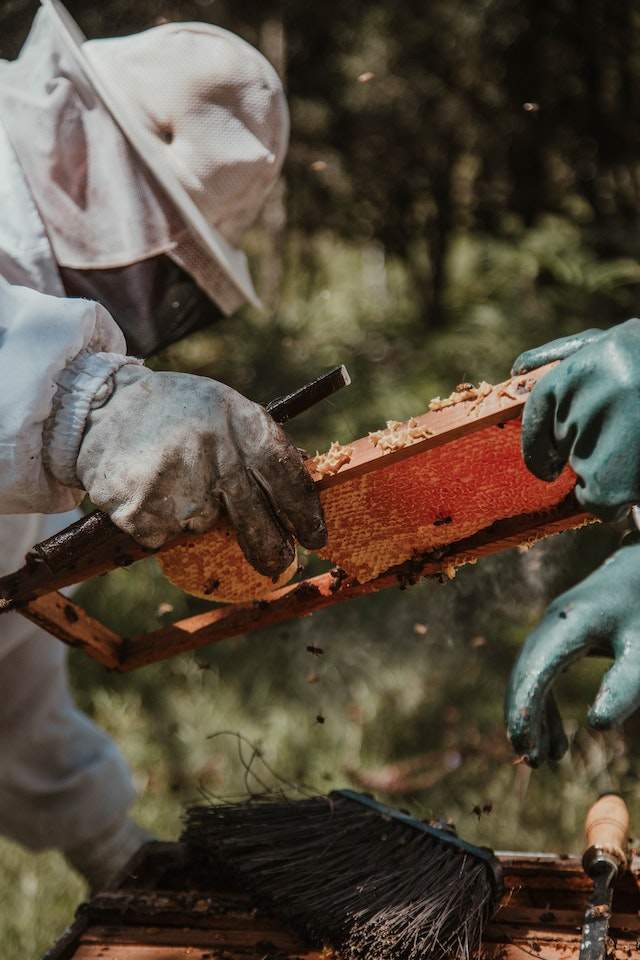
FAQ
Can you keep bees in Atlanta?
No county, municipal corporation, consolidated government, or other political subdivision of this state shall adopt or continue in effect any ordinance, rule, regulation, or resolution prohibiting, impeding, or restricting the establishment or maintenance of honeybees in hives.
How do you become a certified beekeeper in Georgia?
Individual should be functioning as a competent hobby beekeeper with emerging skills and knowledge for functioning at the sideline level or serving as an industry leader and ambassador.
Requirements:
- Must have had at least one year beekeeping experience prior to sitting for exams.
- Must pass a written and practical test.
- The practical test includes being able to:
- describe the parts of a beehive;
- light and properly use a smoker;
- recognize the various stages of brood, different castes of bees, and find or at least describe the queen;
- differentiate between brood, pollen, capped honey;
- recognize common diseases and disorders;
- recognize propolis and describe its functions; and
- describe the layout of a brood nest, i.e., placement of honey, pollen and brood.
- The written test includes materials covered during Institute lectures and labs, as well as outside readings.
Are there killer bees in Georgia?
Although we believe it is unlikely that Africanized honey bees (AHB) are established in Georgia, we cannot state this with 100% certainty. Africanized honey bees were determined to be established in several central Florida counties in 2005.
